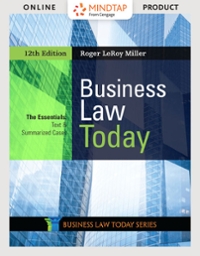Question
1.The process for buying a car in the U.S. seems to usually exhibit the following characteristics (it may differ from these, but I'm not an
1.The process for buying a car in the U.S. seems to usually exhibit the following characteristics (it may differ from these, but I'm not an expert in the auto industry so just take these as given for the sake of argument):
a.A car dealership purchases cars from a manufacturer at a specific wholesale price, set by the manufacturer.
b.The car dealership puts a sticker in the car window which includes the MSRP, or manufacturer suggested retail price.
c.The car dealership negotiates the actual selling (retail) price with individual customers, such that the same car may sell for different retail prices for different customers.
For the three prices mentioned above (wholesale price, MSRP, and retail/selling price) describe how much market power an individual car dealership would have in setting each price. In terms of just the retail/selling price, how might an individual car dealership's potential market power be affected by the presence of other car dealerships in town? (E.g., a small town that has one dealership vs. a larger city where several car dealerships usually cluster in a certain area).
Given that car dealerships always ensure that the retail/selling price exceeds the wholesale price, such that customers pay more for the car than the dealership itself does, why do customers continue using car dealerships instead of purchasing the car directly from the manufacturer at its factory?
Step by Step Solution
There are 3 Steps involved in it
Step: 1

Get Instant Access to Expert-Tailored Solutions
See step-by-step solutions with expert insights and AI powered tools for academic success
Step: 2

Step: 3

Ace Your Homework with AI
Get the answers you need in no time with our AI-driven, step-by-step assistance
Get Started


